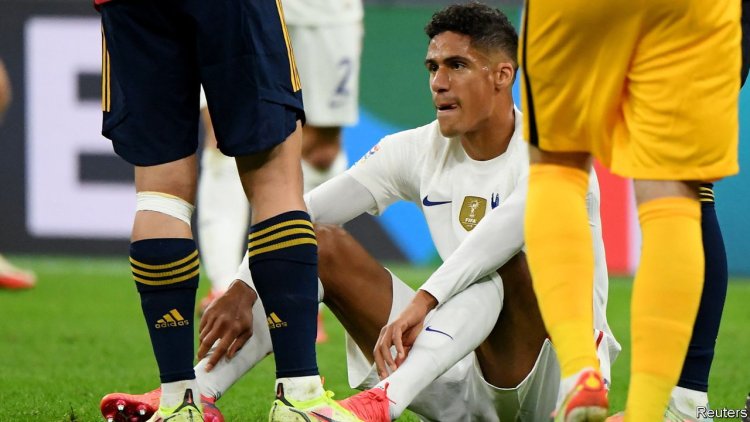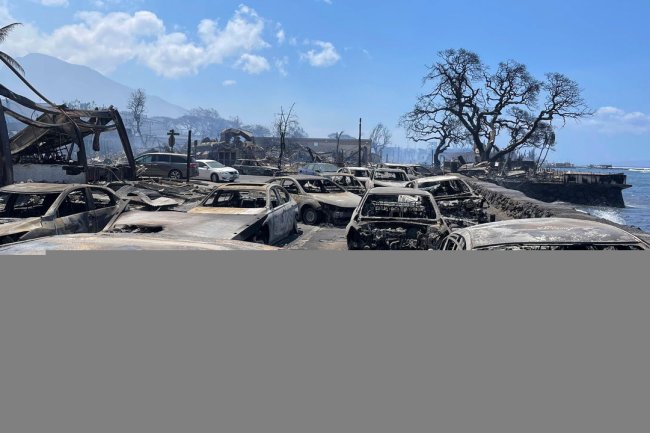Is there too much football?
image: ReutersLIFE WAS difficult for leading footballers in Victorian England. As amateurs many had to combine playing with arduous jobs, often shifts on the factory floor. The most successful modern players have it easy by comparison. They are paid millions to focus solely on their craft. But now some of today’s elite are objecting that they, too, are overworked. This month Raphael Varane, who plays for Manchester United, slammed the sport’s governing bodies for overloading the football calendar, which he said was becoming “dangerous” for players’ “physical and mental well-being”.Mr Varane was speaking from experience. Since the start of the 2018-19 season, the Frenchman has been one of the most active footballers in Europe, featuring in more than 250 matches, according to FIFPRO, a group representing around 66,000 players from 66 countries. He made nearly 60% of these appearances within five days of a previous game, thereby getting less rest than FIFPRO recommends. His team-mate at U


LIFE WAS difficult for leading footballers in Victorian England. As amateurs many had to combine playing with arduous jobs, often shifts on the factory floor. The most successful modern players have it easy by comparison. They are paid millions to focus solely on their craft. But now some of today’s elite are objecting that they, too, are overworked. This month Raphael Varane, who plays for Manchester United, slammed the sport’s governing bodies for overloading the football calendar, which he said was becoming “dangerous” for players’ “physical and mental well-being”.
Mr Varane was speaking from experience. Since the start of the 2018-19 season, the Frenchman has been one of the most active footballers in Europe, featuring in more than 250 matches, according to FIFPRO, a group representing around 66,000 players from 66 countries. He made nearly 60% of these appearances within five days of a previous game, thereby getting less rest than FIFPRO recommends. His team-mate at United, Bruno Fernandes, has had it even worse. The Portuguese midfielder tops FIFPRO’s football-workload index. Last season he played 70 matches; FIFPRO’s medical experts recommend 55 at most.
Such shifts are a recent phenomenon. At 23 years old, Vinicius Junior has played three times as many minutes for club and country (Real Madrid and Brazil) as Ronaldinho, a Brazilian star 20 years his senior, had at the same age. Jude Bellingham, England’s brightest young talent, played 30% more professional football before the age of 20 than did Wayne Rooney, who was a teenage star two decades ago.
Some of the recent increase in workloads is due to the pandemic, which skewed schedules. But most of the additional burden is down to clubs (something to which Mr Varane’s complaint did not allude). It is they, after all, that decide who gets to play, and for how long. Pre-season weeks that are meant to be a time for preparation are increasingly seen as moneymaking opportunities. Clubs often embark on long, lucrative tours abroad that can drain players. Last season Mr Fernandes reported back for duty after just 22 days off (FIFPRO recommends a break of 28 days).
FIFA, the game’s global governing body, has done little to help. Last year it scheduled the World Cup, the sport’s biggest tournament, in the middle of the football season in Europe, home to most top players. That gave players in national teams little time to recover. Eight days after playing in (and losing) the World Cup final, Mr Varane was once again lacing up his boots for Manchester United.
Such schedules are taking their toll on many players, not just the stars. According to FIFPRO, 44% of footballers reported that they had experienced either extreme fatigue in the 2022-23 season, or more fatigue than in the previous season. Tired footballers are more likely to get hurt. Nearly two-thirds of the injuries reported in Europe’s five biggest leagues last season were to soft tissue—the type associated with accumulated fatigue or insufficient recovery. According to a meta-study of men’s football published in 2022, fixture congestion also increases the risk of injuries. A FIFPRO survey in the same year revealed that 40% of footballers felt that a packed schedule was harming their mental health.
Unhappy and unfocused players are rarely good ones. Many are retiring early from international football. Mr Varane, for instance, quit the French national team after the World Cup at the relatively early age of 29, citing his workload. Calling time gives him 30-50 extra days of rest a year.
Things are likely to get worse. Referees are now required to lengthen games to make up for breaks in play. FIFPRO believes that, as a result, over a season some players could play the equivalent of three extra matches.
Tournaments are also getting bigger. Next season the Champions League, Europe’s premier club tournament, will expand to 36 teams (from 32). The following season FIFA plans to launch a bloated Club World Cup with 32 teams. For some players that could lead to an increase of more than 10% on their current workload. Diogo Jota, a Portuguese forward, played 64 matches in the 2021-22 season, when his club, Liverpool, reached the Champions League final. A similarly successful season under the new formats would take his count to 72.
Players in other sports have found ways to push back. In American football, they have negotiated an agreement with the National Football League that includes restrictions on workload, for example by limiting the amount of time spent training in pre-season. Similarly, Australian-rules football players have negotiated two compulsory rest days during every week of pre-season, and a day per week during the season.
Football seems a long way from such measures. With so many domestic leagues competing for players and audiences, the sport suffers from a collective-action problem. More money than ever is pouring into the game, from media companies, private-equity investors and now, increasingly, sovereign-wealth funds. That makes it harder to reduce the number of matches. A lot of that money goes to the players, many of whom will prefer cash to a lighter workload. Tired though they are, they will carry on playing.■
What's Your Reaction?













